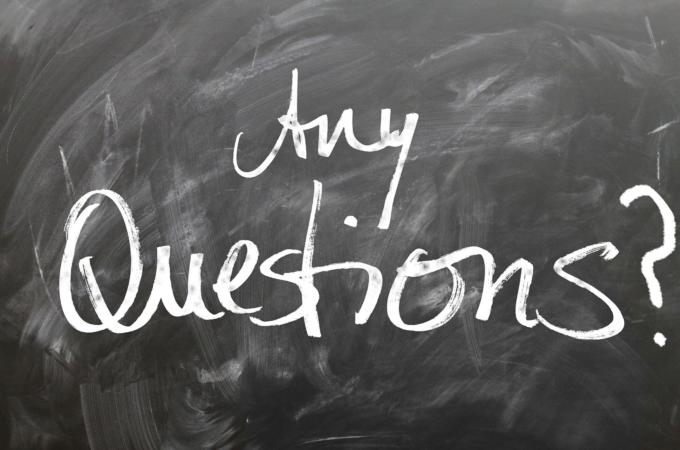If you wonder why...
If you wonder why:
-- The America Catholic Church is demographically on a path to extinction...
-- That 80 percent of Catholics are no longer Catholic by the time they turn 23 years of age...
--That only 30 percent of Americans who were raised Catholic are still practicing their faith...
-- That 10 percent of all adults in America are ex-Catholics ...
Well, congratulations. You are wondering about the essential question of our era.
And, congratulations to The Pilot for two alarming articles in recent weeks: One, the "Why Catholics are Leaving the Faith by Age 10 -- and What Parents Can Do about It" and second, Bishop Robert Barron's recent piece, "Apologists, Catechists, Theologians: Wake Up!" Together, these two articles go a long way to explaining the suicidal ride the Church in America is currently on.
But there is another cause for our children turning to atheism, agnosticism or a "why bother" indifference. The current generation of American Catholics has turned over the education of their children to state schools (a.k.a. public schools) and state schools have, in recent years, become aggressively "religion-free zones." What that means operationally is that the education of children from age 4 or 5 until 17 or 18 is void of reference to the most important fact of their lives: that they are children of a loving God and that their mission in life is to know, love and serve God.
That doesn't mean no math and science. It doesn't mean anti-intellectualism or bias toward those with different world-views. It means understanding who one is and how one should meaningfully spend one's life. What could be more central to one's education that the pursuit of that question?
Both of us began our careers in education as public school teachers. In those far-off days, religion -- all religions -- were looked on as a positive social good, part of the social glue that kept a diverse society together. The existence of God was not questioned. Rather God was treated as a "take-it-for-granted-but-don't-talk-much-about-Him" figure.
Today, public schools are different. To call them "religion-free" zone doesn't quite capture the situation. Rather, all positive contributions of religion, such as being the cradle of science and the centuries of humanitarian work, are ignored. On the other hand, the crimes of Christians, and by extension the Church, from the Inquisition to the Crusades, and more recently to the "evils" of St. Junipero Serra oppressing California Native Americans with his Christianity are trotted out.
To the degree that religion is mentioned in public school circles, the party line is, "Teachers are allowed to teach objectively about the Bible and religion but not preach a particular religious viewpoint." First of all, to teach "about" the Bible in the same way one would teach about Mark Twain's Huckleberry Finn, and "about" the Catholic Church in the same way one would teach about Zoroastrianism or Wicca is not possible.
Public school advocates further assert that no religious or secularist viewpoint can occupy a privileged position in the public school. However, today's public schools are de facto teaching a secular viewpoint -- and aggressively so. Elementary and secondary students increasingly see religion and science in conflict. Further, the only truth that is acceptable is that backed by their orthodoxy, science.
As Dr. Mark Gray, the author of the loss-of-faith study cited above stated, "Those that are leaving (our Church) for no religion -- and a pretty big component of them saying they are atheist or agnostic -- it turns out that when you probe a bit more deeply and you allow them to talk in their own words, that they are bringing up things that are related to science and a need for evidence and a need for proof."
We are in no way suggesting that religion should be taught in our public schools. And, of course, we not advocating bringing prayer back to the public schools. If you have ever witnessed the disrespectful manner with which the Pledge of Alliance is recited, there can be little doubt how an innocuous, state-approved, ecumenical prayer would be treated.
The essential and ultimate question of education is "What is most worth knowing?" What from the universe of ideas, knowledge and theories should be present to our children to learn? To turn over the answer and implementation of those questions to a political entity, the secular state was, and is, madness. As a political entity, the state has its own educational goals and mechanisms to achieve them.
Today, the state's progressive educational agenda is to develop "good citizens," who pay their taxes, fit into the workforce requirements of the economy and go along with the regime's agenda. This agenda is especially frightening today as so many representatives of the state are hostile to religion, and when our Catholic religion, in particular, is regularly being characterized as medieval and hostile to "human progress." (Read: opposition to abortion, same-sex marriage and any number of new progressive causes.)
There is an answer. As in other democratic countries, the state should collect tax monies and distribute it back to parents to select and pay for the education they want their children to have. Parents, as the primary educators of their children, have the right and the obligation to select the educational goals their children need.
- Kevin and Marilyn Ryan, editors of "Why I'm Still a Catholic," worship at St. Lawrence Church in Brookline, Mass.



















